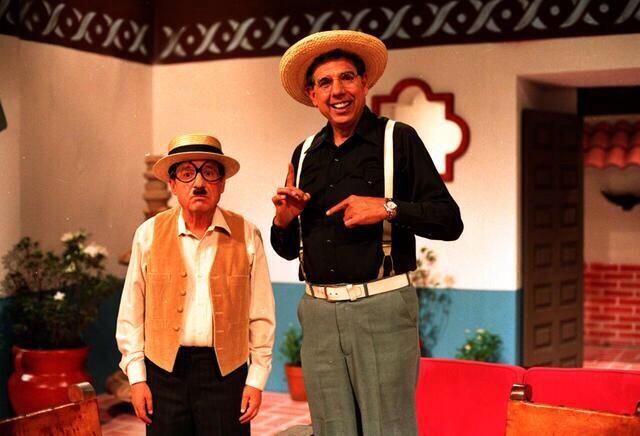
Google Doodle Roberto Gómez Bolaño
Roberto Gómez Bolaños, who was known as Chespirito (“Little Shakespeare”), was a beloved Mexican screenwriter, actor, and humorist, who was popular on Mexican television.
He was more than that, though. Gomez Bolaños was a Mexican “screenwriter, actor, comedian, film director, television director, playwright, songwriter, and author,” according to IMDB. Google is honoring him on February 21, 2020 on what would have been his 91st birthday with a Google Doodle.
“For more than 40 years, Chespirito masterminded the creation of hundreds of episodes of television, in addition to movies and plays, capturing the hearts of millions with his signature style of clean and hopeful humor,” Google wrote. “His legacy lives on in the series’ reruns, which have been translated into over 50 languages and continue to run on television networks globally to this day.”
Here’s what you need to know:
1. Roberto Gómez Bolaños Initially Studied Engineering
Things might have gone very differently for Gomez Bolaños. His initial career focus was engineering, according to Google.
He was born on February 21, 1929 in Mexico City. After studying engineering, he shifted interests and began writing. According to The New York Times, Roberto Gómez Bolaños was born to parents Francisco Gómez Linares and Elsa Bolaños-Cacho.
His father was described by the Times as a “noted painter and illustrator.” His first writing job was for an advertising agency at age 22, The Times reported. He was already working in television by the 1950s. According to the Los Angeles Times, his mother was a bilingual secretary.
As a boy, he was interested in soccer and boxing but he was small and that didn’t bode well for a sports career, The LA Times reported in his obituary.
2. His Big Break Was a Comedy Sketch Show
According to Google, Gómez Bolaños contributed “to some of Mexico’s highest-rated television and radio programs.”
One of his “first big breaks” arrived in 1970 with his own “self-titled, hour-long comedy sketch show,” Google reports. In this show, he introduced two characters: El Chapulín Colorado (The Crimson Grasshopper) and El Chavo del Ocho (“The Boy From Bo. Eight,”) according to Google.
The New York Times described how the opening to The Crimson Grasshopper went: “More agile than a turtle, stronger than a mouse, nobler than a lettuce, his coat of arms is a heart. It’s the Crimson Grasshopper!”
Google describes the first character as a “satirical superhero,” and the second as “a quirky 8-year old orphan.” According to CNN Espanol, he catapulted to international stardom with El Chavo del 8, which broadcast in 1971.
You can see his website here.
3. Gómez Bolaños Died of Heart Failure
Unfortunately, Gómez Bolaños is no longer alive. His IMDB profile says he died in 2014 of heart failure as “a complication of Parkinson’s disease.” He was 85 years old. He died in Cancun, Mexico.
When he died, hundreds of fans flocked to a stadium to offer tribute to him, according to CNN Espanol.
In the 1990s he turned to play writing, according to The Times, which quoted him as saying, “I never wrote for children. I wrote with respect for the audience, which I’ve maintained all my life. Doesn’t mean I couldn’t be risqué, but I did it smartly, without being vulgar.”
4. Gómez Bolaños Left Behind a Wife
Gómez Bolaños was married to wife Florinda Meza. After he died, she paid tribute in a video praising him as a life partner, according to CNN Espanol.
According to The Times, she was his second wife and played a role in El Chavo. He had six children and 12 grandchildren at the time of his death. Her children were with his first wife, Graciela Fernandez.
His children are Roberto, Graciela, Marcela, Paulina, Teresa and Cecilia.
5. The Mexican President Praised Him as an Icon
When he died, the Mexican president paid tribute, writing on Twitter, “Mexico has lost an icon whose work has transcended generations and borders.”
Gómez Bolaños once said that he wanted to reach modest people.
“There are writers that put forth words and concepts that sound very important,” Gomez told the Mexican daily La Jornada in 2005, according to The LA Times. “But in the end, they have nothing. I always tried to be as concise as possible, so that not only would it reach everyone, but especially the modest people, who needed to be reached more than anyone else.”
